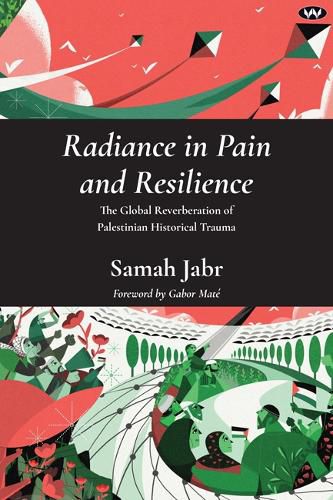Radiance in pain and resilience by Samah Jabr

All of us who read this book become witnesses. This is the plea from Dr Samah Jabr, a Palestinian psychiatrist, who has gathered together her many essays on injustice in Palestine. It is shocking to read the dates of some of the essays: ‘The Palestinian resistance: its legitimate right and the moral duty’ (2003), ‘Case report: Imprisonment and torture-triggered psychopathology’ (2008), and many more, continuing until present day. Gaza has been under siege for more than 20 years. Samah Jabr continues to write about the psychological consequences of the Israeli occupation in Palestine. The essays are short; you can pick up the book and read from any of the sections about Gaza, or family in Palestine, or mental health under occupation, or resistance and resilience, or solidarity. The writing is succinct, powerful, and unforgettable.
While the psychiatric assessment of people she sees in her clinic might initially be labelled Post-Traumatic Stress Disorder, this Western framework focussed on the individual is insufficient to deal with the complexity of continuous collective trauma living under relentless threat and systemic violence; a trauma that goes beyond personal dysfunction, and cannot be remedied by any individual change. It is a world of disaster that continues, and from which there is no escape.
There is an acronym WCNSF ‘Wounded Child, No Surviving Family’, unique to the Gaza Strip, and used only too frequently. There are dogs eating the bodies of killed Gazans, ‘a Palestinian’s body dragged by a rope attached to an Israeli military vehicle . . , forced nudity and torture’. Writing in 2023, Jabr describes collective punishment: no food, fuel, electricity, water or medical supplies, and the displacement of hundreds of thousands of Palestinians; the direct killing through bombardment, and the indirect killing through starvation and destruction of the health system. How does a psychiatrist deal with the impact of genocide? The need is huge, the resources minimal.
Jabr explains the Arabic concept of sumud: more than resilience, it the idea of perseverance and steadfastness. A symbol of sumud is an old olive tree deeply rooted in the land. The Palestinian people continue to endure and resist. Sumud is also the banner of the global freedom flotilla, the international civilian-led convoy of ships that is currently seeking to break the Israeli blockade and bring urgent humanitarian aid to Palestine.
Rallies around the world sending messages of support are important to overcome the Palestinian people’s sense of abandonment and betrayal. Rallies for solidarity provide an uplifting image of essential human compassion and kindness. Samah Jabr calls for positive change, ‘a future where the radiance of resilience and solidarity prevails over the shadows of the past and its pain’.
I found each of the essays in this collection easy to understand, and at the same time incredibly moving, but readers who would not normally select non-fiction, but would like to better understand the Arab perspective on the Palestine-Israeli conflict, might like to explore Ibtisam Azem’s fictional The book of disappearance which reveals the ghosts of the past city Jaffa beneath the greater Tel Aviv, or alternatively Rock flight by Hasib Hourani, a free-form poem starkly revealing the ongoing suffering of the people of Palestine.
Themes: Palestine, Persecution, Displacement, Genocide, Resilience.
Helen Eddy